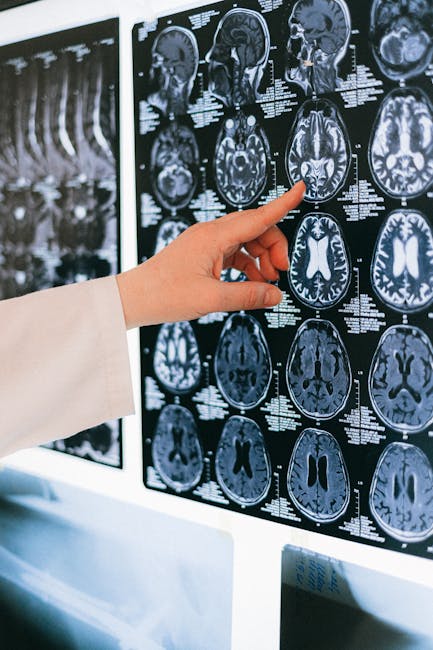Thyroid Disease: Understanding Symptoms, Diagnosis, and Treatment Options
Thyroid disease encompasses a range of conditions affecting the thyroid gland, a small butterfly-shaped organ located at the base of your neck. This gland plays a crucial role in regulating your metabolism, influencing numerous bodily functions, from heart rate and body temperature to energy levels and weight management. When the thyroid gland malfunctions, either producing too much or too little thyroid hormone, it can lead to a variety of health problems. This comprehensive guide explores the different types of thyroid disease, their symptoms, diagnostic methods, and available treatment options.
Understanding the Thyroid Gland and its Function
The thyroid gland produces thyroid hormones, primarily thyroxine (T4) and triiodothyronine (T3). These hormones are vital for regulating metabolism, impacting almost every cell in the body. They control how your body uses energy and influence processes like:
- Heart rate and blood pressure
- Body temperature
- Weight management
- Muscle strength
- Digestion
- Mood and mental function
- Menstrual cycles
- Bone density
Imbalances in thyroid hormone production can lead to significant health consequences, highlighting the importance of understanding thyroid health.
Types of Thyroid Disease
Thyroid disorders can broadly be categorized into two main groups:
Hypothyroidism (Underactive Thyroid)
Hypothyroidism occurs when the thyroid gland doesn’t produce enough thyroid hormones. This leads to a slowing down of metabolic processes. Common symptoms include:
- Fatigue and lethargy
- Weight gain
- Constipation
- Dry skin and hair
- Intolerance to cold
- Muscle aches and weakness
- Depressed mood
- Swelling in the face, hands, and feet (myxedema)
- Heavy menstrual periods
- Hoarseness
Untreated hypothyroidism can lead to serious complications, such as heart disease, high cholesterol, and infertility.

Hyperthyroidism (Overactive Thyroid)
Hyperthyroidism occurs when the thyroid gland produces excessive amounts of thyroid hormones. This leads to a speeding up of metabolic processes. Common symptoms include:

- Unexplained weight loss
- Increased appetite
- Rapid or irregular heartbeat (palpitations)
- Increased sweating and heat intolerance
- Tremors
- Nervousness or irritability
- Difficulty sleeping
- Fatigue and muscle weakness
- Frequent bowel movements
- Thinning skin
- Enlarged thyroid gland (goiter)
- Protruding eyes (exophthalmos, in Graves’ disease)
Untreated hyperthyroidism can lead to serious conditions such as osteoporosis, heart problems, and even thyroid storm, a life-threatening condition.
Other Thyroid Conditions
Beyond hypothyroidism and hyperthyroidism, other conditions can affect the thyroid gland, including:
- Goiter: An enlargement of the thyroid gland, which can be caused by both hypothyroidism and hyperthyroidism, as well as iodine deficiency.
- Thyroid nodules: Lumps that develop in the thyroid gland. Most are benign, but some can be cancerous.
- Thyroid cancer: A relatively rare cancer, but early detection is crucial for successful treatment.
- Thyroiditis: Inflammation of the thyroid gland, which can be caused by various factors, including autoimmune diseases.
- Postpartum thyroiditis: Inflammation of the thyroid gland that can occur after childbirth.
Diagnosis of Thyroid Disease
Diagnosing thyroid disease typically involves a physical examination and blood tests. Blood tests measure the levels of TSH (thyroid-stimulating hormone), T3, and T4. These tests can help determine whether your thyroid is overactive, underactive, or functioning normally. Imaging tests, such as ultrasounds or scans, might be needed to assess the structure of the thyroid gland and identify nodules or other abnormalities.
Treatment Options for Thyroid Disease
Treatment for thyroid disease depends on the specific condition and its severity. Options include:
- Medication: For hypothyroidism, synthetic thyroid hormone replacement (levothyroxine) is commonly prescribed. For hyperthyroidism, medications may be used to block thyroid hormone production or reduce its effects.
- Radioactive iodine therapy: This treatment uses radioactive iodine to destroy some of the thyroid cells, often used for hyperthyroidism.
- Surgery: In some cases, surgery may be necessary to remove part or all of the thyroid gland, particularly for thyroid nodules or cancer.
- Lifestyle changes: Maintaining a healthy diet, regular exercise, and managing stress can support overall thyroid health.
Living with Thyroid Disease
Living with thyroid disease requires ongoing management and regular monitoring. Regular checkups with your doctor, adherence to prescribed medication (if any), and adopting a healthy lifestyle are essential for maintaining optimal health and preventing complications. Support groups and online resources can also provide valuable information and emotional support.

Disclaimer: This article provides general information and should not be considered medical advice. Always consult with a healthcare professional for diagnosis and treatment of any medical condition.

